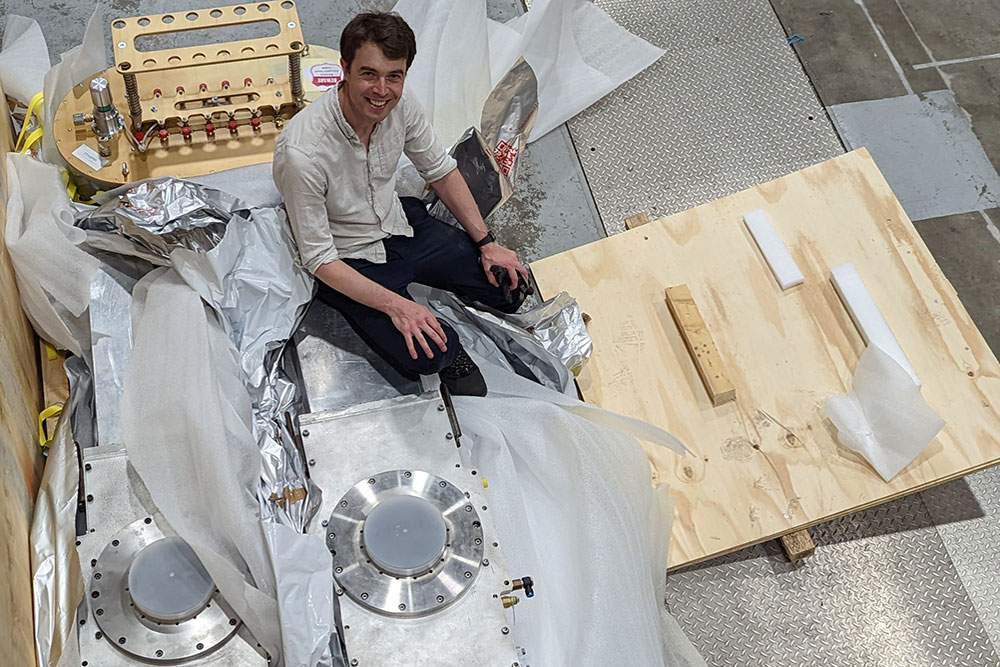NSE’s Jack Hare to explore geothermal stimulation technology

Assistant Professor of Nuclear Science and Engineering Jack Hare has received funding to participate in the development of next generation geothermal stimulation technology. Hare will work on a project led by Eden, a geoscience technology development company. Founded by two MIT Geophysics PhD students, Eden aims to elevate the role of geothermal energy as part of the world’s decarbonization effort.
The project focuses on Electro-Hydraulic Fracturing (EHF), a technique that uses high-voltage electricity and low-volume water injection to access a fracture network for heat recovery. This new electro-magnetic approach improves on traditional hydraulic fracturing by using less water, and providing better imaging and monitoring of fracture networks. Hare will be using pulsed-power technology to break apart rocks in geothermal reservoirs, dramatically increasing the surface area available for heat transfer, and therefore the economic viability of deep geothermal power generation. Also on the team are researchers from Idaho National Laboratory and members of MIT’s Earth Resources Laboratory: Professor of Civil and Environmental Engineering Herbert Einstein, Professor of Mathematics Laurent Demanet, and Dr. Aime Fournier.
Eden has received a $3.8M award for this research from Advanced Research Projects Agency-Energy (ARPA-E), which seeks to support cutting edge, potentially game-changing energy technologies at an early stage in their development.
Hare will conduct this work at MIT’s Plasma Science and Fusion Center (PSFC). He anticipates a compelling research journey. “I’m excited to be working with Eden and the rest of the team on a potentially revolutionary technology for Enhanced Geothermal Systems power generation,” he says, “and to use my pulsed-power expertise to tackle a new challenge.”
ARPA-E has also funded MIT research led by PSFC Director Dennis Whyte, aimed at tackling a new method of breeding tritium (T), an isotope of hydrogen necessary for creating practical fusion energy in a power plant environment.
June 2022
